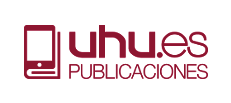Communicative English Language Skills Improvement Programme (CELSIP) through Challenge-Based Learning.
Keywords:
Abstract
The unstoppable progress of technology combined with the circumstances caused by the past health crisis has led to new ways of learning and teaching EFL (English as a Foreign Language). This case study aims to create an adapted version of the already existing Communicative English Language Skills Improvement Programme (CELSIP) for Secondary Education and to implement it using a Challenge-Based approach to involve students more actively and to a greater extent in their learning process. This multimodal programme was designed to encourage autonomous learning by providing students with free tools to be more exposed to the target language and to improve students’ oral reception and production skills while responding to their personal needs and interests. For this study to be carried out, students worked autonomously during the challenge period, performed a challenge and reflected and self-assessed their learning progress through the tools provided to that end. The findings reported higher levels of motivation, better pronunciation in the target language (plurilingual competence) and new vocabulary acquisition.
Downloads
Altmetrics
References
Alcantud-Díaz, M. y Soler Pardo, B. (2023). Programa de mejora de competencias comunicativas del inglés como L2 para hispanohablantes. Conectamos la educación formal con la informal. Octaedro.
Alcantud Díaz, M. & Soler Pardo, B. (2022). Multi-intelligence Empowerment in EFL Teaching. The CELSIP Programme for Autonomous Learning with Pre-service Teachers. MEXTESOL Journal, 46 (2),1-13.
Alcantud Díaz, M. & Soler Pardo, B. (2020). Communicative English Language Skills Improvement Programme (CELSIP), 4. http://roderic.uv.es/handle/10550/73114.
Apple (2011). Challenge Based Learning: A classroom guide. http://www.apple.com/br/education/docs/CBL_Classroom_Guide_Jan_2011.pdf
Atkinson, L. M. (2015). A Longitudinal Investigation of the Social, Cognitive and Social Cognitive Predictors of Reading Comprehension. Unpublished Doctoral Thesis. University of Roehampton.
Baltova, I. (1999). Multisensory Language Teaching in a Multidimensional Curriculum: The Use of Authentic Bimodal Video in Core French. Canadian Modern Language Review, 56, 32-48. https://doi.org/10.3138/cmlr.56.1.31
Birol, G., A. F. McKenna, Smith, H. D., Giorgio, T. D., & Brophy, S. P. (2002). Integration of the ‘How People Learn’ Framework into Educational Module Development and Implementation in Biotechnology. Annual International Conference of the IEEE Engineering in Medicine and Biology. Proceedings, Houston, TX, USA.
Brockbank, A. & McGill, I. (1998). Facilitating Reflective Learning in Higher Education. Society for Research into Higher Education & Open University Press.
Cerveró-Carrascosa, A., & García-Hernández, J. (2021). A Challenge-based & cooperative learning experience in postgraduate education: The Advisory Team. In ICERI2021 Proceedings (pp. 4405-4412). IATED. https://doi.org/10.21125/iceri.2021.1015
Chanin, R., Sales, A., Santos, A. Pompermaier, L., & Prikladnicki, R. (2018). A Collaborative Approach to Teaching Software Startups: Findings from a Study Using Challenge Based Learning. 11th ACM/IEEE International Workshop on Cooperative and Human Aspects of Software Engineering, CHASE 2018, Gothenburg. https://doi.org/10.1145/3195836.3195844
Cheung, R. S., Cohen, J. P., Lo, H. Z & Elia, F. (2011). Challenge Based Learning in Cybersecurity Education. Proceedings of the International Conference on Security and Management (SAM), Las Vegas, NV, USA.
Council of Europe (2018). Common European Framework of Reference for Languages: Learning, Teaching, and Assessment Companion Volume with New Descriptors. Language Policy.
Dewey, J. (1938). Experience and Education. Macmillan Press.
Gallagher, S. E. & Savage, T. (2023). Challenge-based learning in higher education: an exploratory literature review, Teaching in Higher Education, 28 (6), 1135-1157. https://doi.org/10.1080/13562517.2020.1863354
Gaskins, W. B., Johnson, J. Maltbie, C., & Kukreti, A. (2015). Changing the Learning Environment in the College of Engineering and Applied Science Using Challenge Based Learning. International Journal of Engineering Pedagogy (iJEP) 5 (1), 33–41 https://doi.org/10.3991/ijep.v5i1.4138
Gibson, D., Scott, K., & Irving, L. (2019). Developing an Online Challenge-Based Learning Platform. 32nd Annual conference of the Australasian Society for Computers in Learning and Tertiary Education, ASCILITE 2015, Perth, Western Australia, Australia.
Hermann Acosta, A., Apolo, D. E., & Molano-Camargo, M. (2019). Reflexiones y Perspectivas sobre los Usos de las Redes Sociales en Educación. Un Estudio de Caso en Quito-Ecuador. Información tecnológica, 30 (1), 215–224. https://doi.org/10.4067/S0718-07642019000100215
Holmberg, B. (1989). Theory and Practice of Distance Education. Routledge.
Johnson, L. F., Smith, R. S., Smythe, J. T. & Varon, R. K. (2009). Challenge-Based Learning: An Approach for Our Time. The New Media Consortium.
Lehart, A. (2015). Teens, Social Media & Technology Overview 2015. Pew Research Center. https://www.pewresearch.org/internet/2015/04/09/teens-social-media-technology-2015/
Lin, J., & Chen. C (2018). A Study on the Course Types of Challenge-Based Learning – Based on the Relevant Courses in Tsinghua University. 7th World Engineering Education Forum, WEEF 2017, Kuala Lumpur, Malaysia. https://doi.org/10.1109/WEEF.2017.8467159
Marin, C., Hargis, J., & Cavanaugh, C. (2013). iPad Learning Ecosystem: Developing Challenge-Based Learning Using Design Thinking. Turkish Online Journal of Distance Education, 14 (2): 22–34
Ministerio de Educación y formación profesional (2015). Competencias Clave. https://www.educacionyfp.gob.es/educacion/mc/lomce/curriculo/competencias-clave/competencias-clave.html
Morales-Menendez, R., F. J. Cantú Ortiz, N. G. Ramirez, J. Fangmeyer, & De Menendez, A. M. H. (2019). Research Path That Improves Student Engagement. 10th IEEE Global Engineering Education Conference, EDUCON 2019, Dubai, UAE. https://doi.org/10.1109/EDUCON.2019.8725266
Nichols, M., & Cator, K. (2008). Challenge-Based Learning White Paper. Apple, Inc.
Nichols, M., Cator, K. and Torres, M. (2016). Challenge-Based Learner User Guide. Digital Promise.
Seifeddin, A. H. (2021). Becoming Life-long Learners: Preparing EFL Students for the Future. Sohag University International Journal of Educational Research (SUIJER), 4(1). https://doi.org/10.21608/suijer.2021.174769
Soler Pardo, B. & Alcantud Díaz, M. (2020). A SWOT analysis of the Communicative English Language Skills Improvement Programme: A Tool for Autonomous EFL Learning. Complutense Journal of English Studies, 28, 109-120. https://doi.org/10.5209/cjes.63845.
Tecnológico de Monterrey (2016). Aprendizaje Basado en Retos. Edu trends 1. Instituto Tecnológico y de Estudios Superiores de Monterrey. https://observatorio.tec.mx/edutrendsabr.
Torgesen, J. K., Wagner, R. K. & Rashotte, C. A. (1994). Longitudinal Studies of Phonological Processing and Reading. Journal of Learning Disabilities, 27, 276-286. https://doi.org/10.1177/002221949402700503
United Nations (2015). Transforming Our World: the 2030 Agenda for Sustainable Development. General Assembly. https://www.un.org/ga/search/view_doc.asp?symbol=A/RES/70/1&Lang=E
Yufrizal, H. (2020). Assessment of Oral Language and the Mastery of Discourse Analysis Subject for University Students. Asian EFL Journal Research Articles, 27(4.1), 321-337.

By submitting a proposal, the author agrees to the following terms:
- a) The author retains the authorship rights, granting the journal the right of first publication of the work.
- b) The texts will be disseminated with the Creative attribution license Commons 4.0. BY that allows you to share, copy and redistribute the material in any medium or format, as well as adapt, remix, transform and build on the material for any purpose, including commercially.







